Our Symposium in 2021
Our I international Symposium on Social Interactions in Inclusive Settings happened on the 28–29th of January 2021, and it gathered over 150 participants an amazing group of scholars. Check them out!
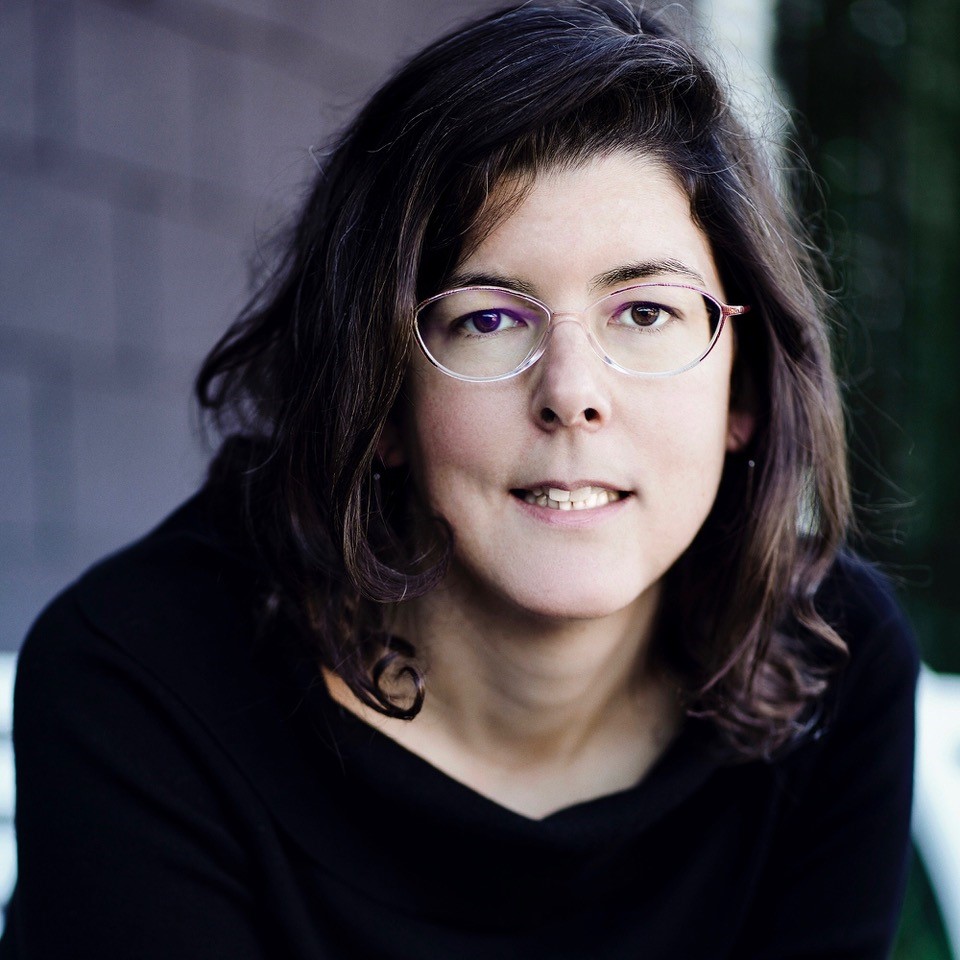
Hanne de Jaegher
Hanne is a philosopher of mind and of cognitive science. She investigates the connections between how we interact, how we understand each other, how we understand the world (together), and the role of all this in our ongoing becoming-in-relation. Broadly, she studies the role of social interaction processes in subjectivity and intersubjectivity. She has proposed the theory of participatory sense-making. This enactive approach to intersubjectivity investigates how we move together while we interact with each other (including speaking), and how this influences how we understand each other and the world, together. One of the main areas of application of her work is in the field of autism research, where her ideas contribute to better understanding autistic experience and interactions, thereby enhancing mutual understanding between autistics and neurotypicals. Together with Barbara Pieper, Daniel Clénin, and Thomas Fuchs, she has been developing a practical-theoretical method to study the experience of interacting, while doing it. Researchers learn to calibrate and trust themselves to be the sophisticated instruments with which to grapple with intersubjectivity, in a systematic, hands-on investigation. In her latest works, Hanne is focusing on investigating the interpersonal capacities of teachers, therapists, doctors, who ‘know something’ as humans that no textbook has taught them, that the cognitive sciences have not been able to put their finger on, and that yet is the very thing that makes them good at their jobs. She says: “When I present my work, to different audiences in different places, people will sometimes say that it is this elusive human knowing that I’m talking about. My current project on Loving and Knowing aims to bring this closer to the fore, and provide a framework to both better think about it, and to become better at it.”
In our symposium, Hanne talked about “Autism and an Ethics of Participation: Seeing and Inviting Participation in Autistic Interactions”. You can follow Hanne’s work from her website
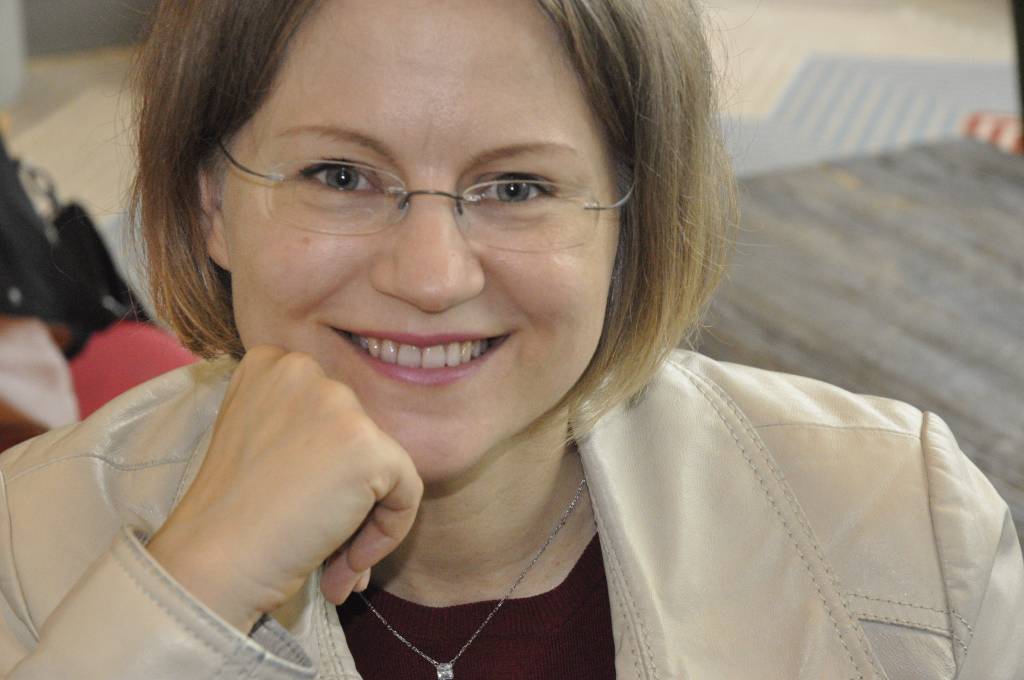
Elina Kuusisto
Elina works as a University Lecturer in the domain of diversity and inclusive education at Tampere University. She also holds a Title of Docent at the University of Helsinki. Her research interests include teacher ethics and school pedagogy. More particularly, through her studies she aims to enhance 1) civic purpose and purposeful teaching among students and teachers; 2) ethical sensitivity and moral education in schools; 3) talent development and growth mindset pedagogy to increase meaningful learning experiences of every student.
In her talk, Elina addressed the key elements of teaching and learning for gifted students, presenting relevant research-based discussions on the Inclusion process in Finland.

Laurent Filliettaz
Laurent is a professor of sciences education in the faculty of psychology and educational sciences at the University of Geneva, Switzerland. During his career he has focused on investigating the relationship between discourse and action (linguistics of discourse and interaction; theories of action), the relationship between language and work (the role of language in the planning, conduct and understanding of professional practices) and the relationship between interaction and professional training (learning at work; support and support in training; relational and identity dimensions of interactions in training). From 2005 to 2011 he led a research program on the circulation of knowledge in training systems, which was funded by the Swiss National Science Foundation (SNSF). His current projects involve teachers’ and parents’ interactive competencies, and the use of interactive analysis in teacher education and training.
In his talk, Prof. Filliettaz showed how the orderly dimensions of participation are the subject of constant interactional work by educators, consisting of making visible the conditions in which children use “turn-taking”. He also looked at how difficult it is for some children to comply with these constraints and the reparation procedures that this can entail. We were be able to work with video sequences and transcripts.

Samira Ibnelkaïd
Samira is a postdoctoral researcher in the unit of languages and literature at the University of Oulu. She is currently working on the “Smart Communication” project. Through an interdisciplinary approach drawing on visual ethnography, multimodal interaction analysis and phenomenology, her research aims is to shed light on the complex and renewed intersubjective practices of techno-bodily presence enacted in digitally artifacted interactions (in mundane, artistic and workplace settings). Her research focuses lays on drawing a typology of the technoverbal ethnomethods used by participants to make their artifacted actions accountable, apprehending social interactions as aesthesiological co-experiences involving three main dimensions: material, socio-affective and aesthetic.
In her talk, she presented a very interesting approach to understanding intercorporeality in challenging interactions.
We also had very interesting and educational method session.
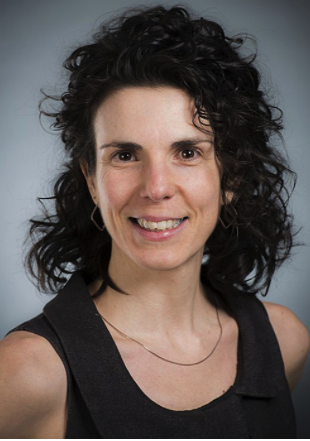
Thania Corbeil
Thania is a professor in the faculty of education at the University of Rimouski. Her research and work focus on exploring educational support for students with multiple disabilities, promoting children’s development in an educational context where different challenges are posed to the teacher. Thania has extensive experience in special and inclusive education, working directly with teacher’s education and training.
She offered an amazing method session on Ethnographic video data: from micro to macro analysis of social interactions
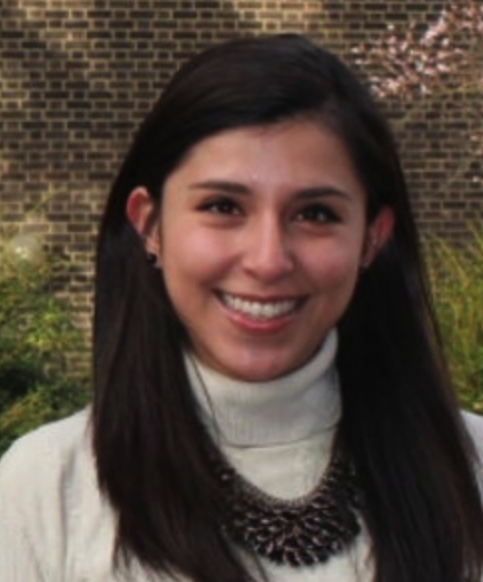
Anna Rubio Jimenez
Ana is an educational psychologist and a PhD researcher in Education at the University of Cambridge, UK. Her research focuses lays on educational dialogue with a special interest in promoting more inclusive practices. In her PhD, she explored how the self-determination of Mexican young adults with intellectual disabilities can be enhanced through a dialogic pedagogy. She is a member of the Cambridge Educational Dialogue Research Group from the Faculty of Education (CEDiR) and collaborates with other CEDiR colleagues in the ‘Teacher Scheme for Educational Dialogue Analysis (T-SEDA)’ research project.
In her methods session, Ana introduced a theory-informed coding framework for systematically analysing educational dialogue across a wide range of educational settings (including classrooms of course). The coding framework is titled: “the Cam-UNAM Scheme for Educational Dialogue Analysis” (commonly referred to as SEDA). SEDA has been published (Hennessy et al., 2016) and used in different research projects (e.g. Huang, Yang, & Li, 2019; Rojas-Drummond et al., 2016). She will also explain how she adapted SEDA to analyse the active participation of young adults with intellectual disability in a goal-setting activity.
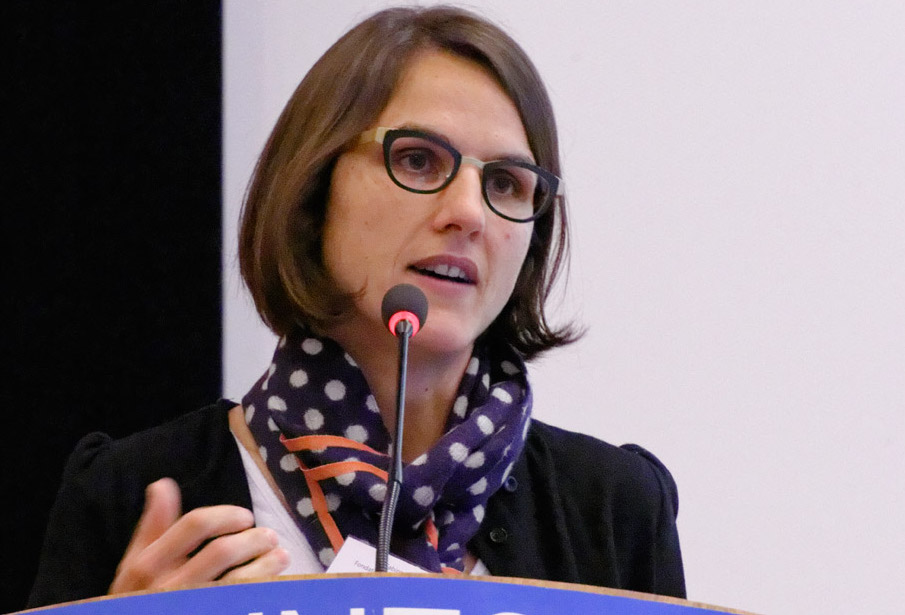
Sabine Zorn
Sabine is a post-doctoral researcher and a special education teacher, coordinator of the Polycom project, with her colleague Esther Atlan. This project funded by the French public health research institute (IReSP) aims to analyse the communication repertoire of students with profound intellectual and multiple disabilities (PIMD) in the classroom and their potential interactions with partners (teacher, paramedical professional, peers). Sabine has worked for 5 years as a coordinator of a lower secondary resource class specifically dedicated to autism spectrum disorders (ASD) in France. During these years, she resumed her studies in psychology in order to nourish her practice with the contributions of research and conducted a study on her own school context. More precisely, she worked on factors favouring the academic learning of adolescents with ASD in lower secondary school, with the supervision of Professor Jean-Louis Adrien (U. Paris Descartes) and Christine Philip (INSHEA). Then, she undertook a PhD supervised by Professor Minna Puustinen (INSHEA) funded by the Ile-de-France region. She worked on investigating help in the classroom regarding lower secondary school students with ASD and their teachers from video recordings of learning situations, interviews and standardised test (VABS II, 2015). In particular, she explored help interactions in the classroom, i.e., the help-seeking behaviours of the students with ASD and ensuing help-giving behaviours of the teachers. Her work has been the subject of several national and international publications and communications. Within this context, she has developed a strong interest in the analysis of classroom interactions.
Sabine and Esther organised a very interesting methods session on how to face the challenge of analysing communication in students with profound intellectual and multiple disabilities.
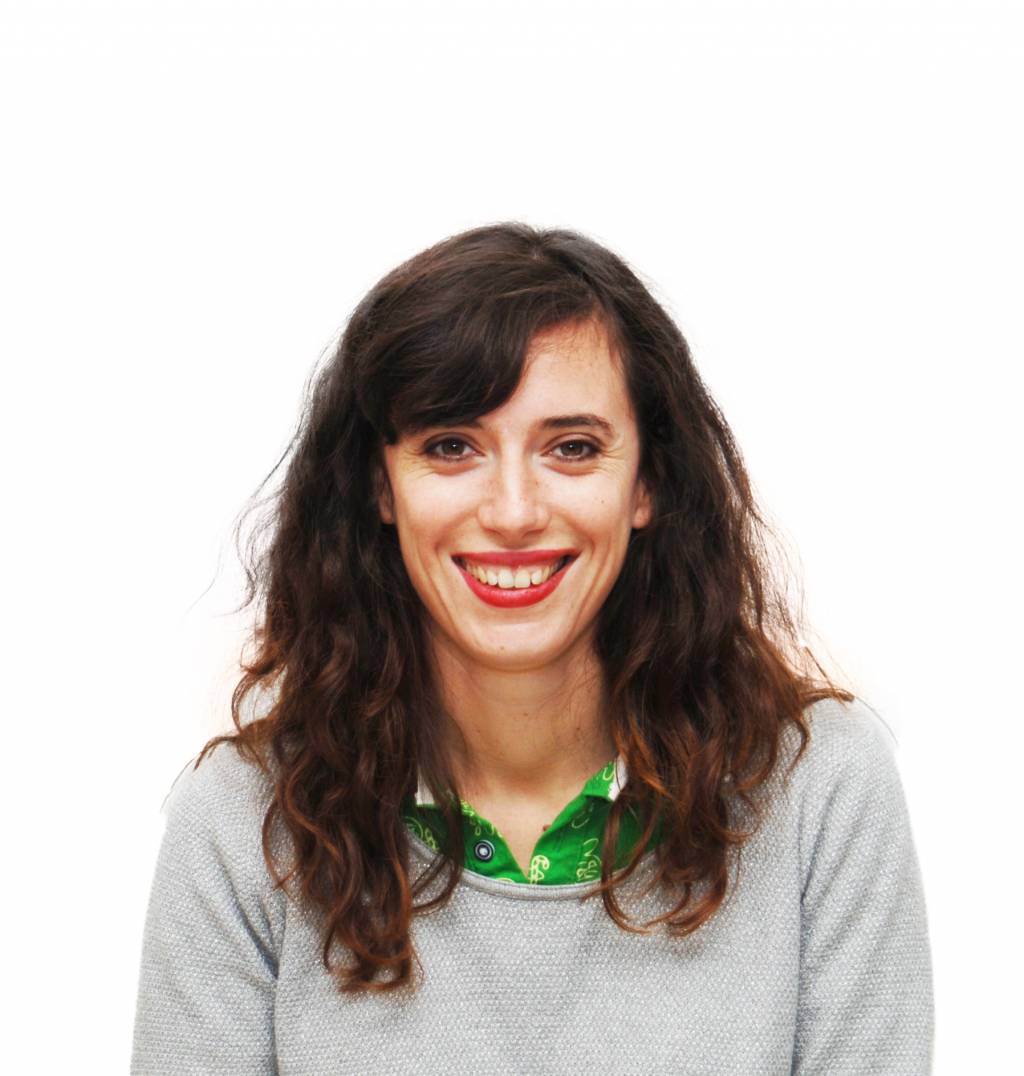
Esther Atlan
Esther is a psychologist and a PhD student, coordinator of the Polycom project, with her colleague Sabine Zorn. This project funded by the French public health research institute (IReSP) aims to analyse the communication repertoire of students with profound intellectual and multiple disabilities (PIMD) in the classroom and their potential interactions with partners (teacher, paramedical professional, peers). She worked with high-school teenagers for 6 years, within sensitive territories. This first experience developed her interest in learning difficulties and extreme clinical situations, as well as the need to combine knowledge of psychology and educational sciences in this context. Then, she had the opportunity to coordinate a research project focused on the learning process of students with PIMD, spanning 4 years. This project, based on a participatory approach, allowed her to work on a large type of different data: video, but also interviews with professionals and parents, focus groups. Her PhD is involved in this project, and under the supervision of Minna Puustinen and Danièle-Toubert Duffort, she decided to focus on the initiative of students with PIMD in the classroom. IN this work, she develops a strong interest in social interactions including a partner with non-symbolic modalities of communication, and the use of video data.
Coordinating the event
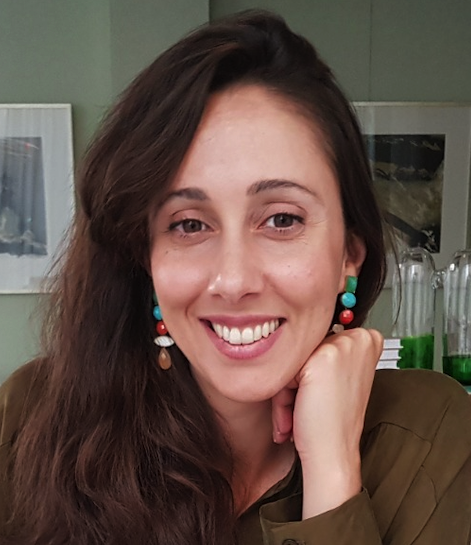
Juliene Madureira Ferreira
Juliene works as an assistant professor (tenure-track) in the faculty of education and culture at the Tampere University. She is an educational psychologist with eight-years work experience in the department of psychology of a university teacher training school in Brazil. She holds a PhD in developmental psychology and a PhD in education, both crossing the fields of Inclusive Education and Early Childhood Education. In her postdoctoral study, she investigated the sociability and the construction of collaboration in different interactive situations, such as among children with disabilities and children with typical development in early childhood education, and among students in upper secondary schools in Brazil, Chile and Finland. In her studies, collaboration has been investigated under an embodied perspective, which evidences the non-verbal communication as an essential structure of intersubjectivity. In her current research, Juliene continues to focus on peer interactions, learning and development, now incorporating physiological data into the analysis of social interactions.
“This symposium was organised to bring together those that are working on this important movement of Inclusion Education. The intention was to provide an arena for rich and instigating discussions, that in time would contribute to the academic and professional development of students and educators in different places of the world. I am proud to say that our symposium gathered over 150 participants and a group of well-known researchers working with different aspects of social interaction within the field of inclusive education. Therein, we discussed possibilities to develop methodologies to investigate social interaction within inclusive settings. Our focus remained on the long-standing worry about the methodological challenges of investigating social interactions. Of particular concern was the use of video data and the analysis of verbal and non-verbal modalities of communication, given that cognition is strongly linked with motor activities and experiences engaging the body. I can’t wait for the great discussions we will have in 2022!”
I would also like to thank you Esther Atlan and Sabine Zorn for contributing to the organisation of this event. It was fantastic to work with them!
